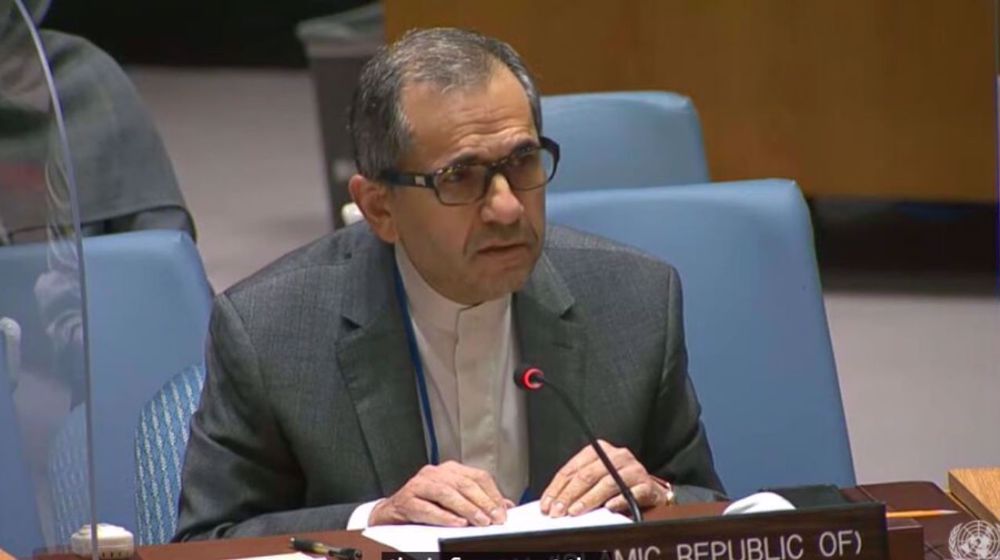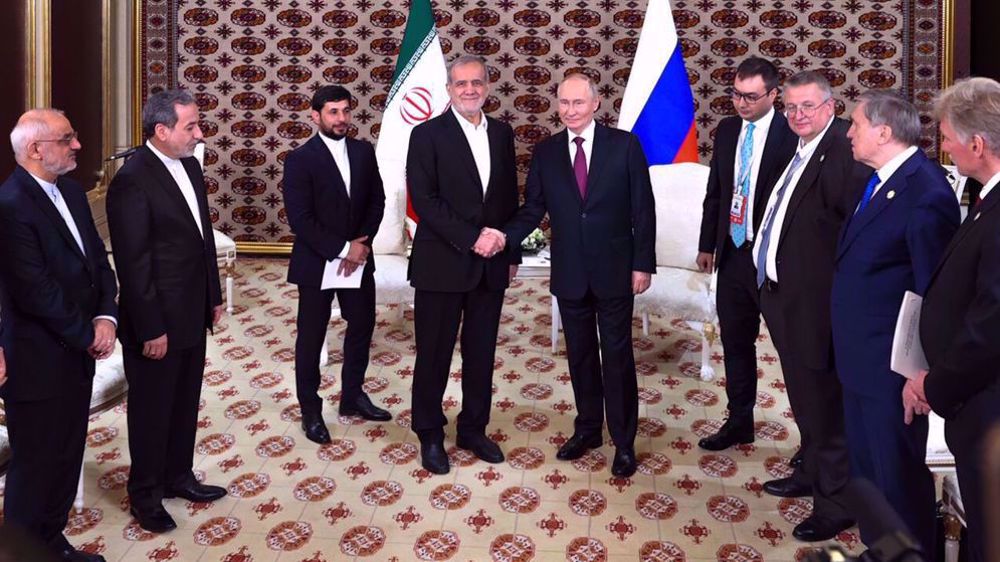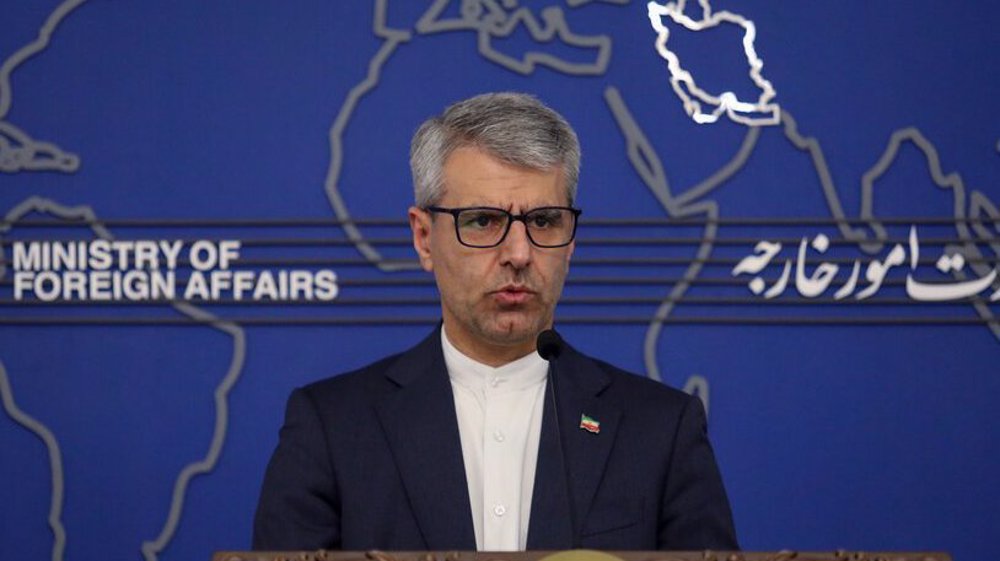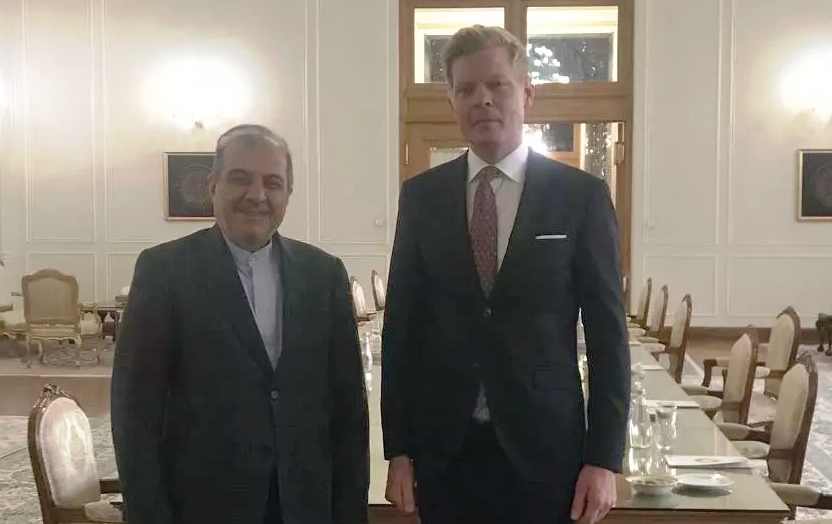Iran-proposed nuclear disarmament resolution is a test for positions and claims of UN member states
By Majid Takht-Ravanchi
Iran’s Permanent Representative to the United Nations
Since the end of the Cold War, the number of nuclear weapons in the world has dropped dramatically to 15,000 warheads, according to the latest estimates, but given the fact that the explosive and qualitative power of new nuclear weapons is thousands of times greater than that of old nuclear weapons, the danger of the existing weapons to human life and the planet is no less – if not greater – than that of the old weapons in question.
Under the Treaty on the Non-Proliferation of Nuclear Weapons, all Nuclear Weapon States have the obligation to destroy all their nuclear weapons. In addition, they are legally obliged not only to refrain from taking any action to manufacture nuclear weapons, but to refrain from transferring such weapons to other countries, deploying them outside their territory, and cooperating with other governments to build atomic weapons.
Under the pressure and pursuit of non-Nuclear Weapon States, nuclear states, after decades of non-compliance with their legal obligations, have once again been obliged to take practical and effective steps within the framework of the final documents of the Nuclear Non-Proliferation Treaty review conferences in 1995, 2000 and 2010.
However, a look at the existing statistics and realities shows that not only Nuclear Weapon States lack the necessary political will to achieve nuclear disarmament, but also their nuclear activities, including increasing the quality of nuclear weapons, modernizing and increasing the destructive power of these weapons, increasing the nuclear weapons’ budget and promoting the status of nuclear weapons in national security doctrines, even in violation of international regulations and obligations, have created a situation in which the past trend does not show a significant move towards nuclear disarmament and it does not seem that there would also be such a prospect in the future.
It is worth emphasizing that in the absence of real nuclear disarmament, NWSs and their allied countries pursue a policy of reducing nuclear risk, which given its very small scope and lack of consideration of real nuclear disarmament, it is not by no means possible to consider this ostensible policy as an alternative and equivalent to nuclear disarmament.
In response to this situation, since 2005, the Islamic Republic of Iran has been the main sponsor of the biennial resolution, entitled “Following-up the Implementation of the Agreed Obligations at the NPT Review Conferences in 1995, 2005 and 2010.”
The main purpose of this resolution is the implementation of the obligations of the NWSs on nuclear disarmament within the framework of the Treaty on the Non-Proliferation of Nuclear Weapons (NPT).
The draft of this resolution was first submitted to the United Nations General Assembly First Committee (Committee on Disarmament and International Security), and after consideration and initial decision in this committee, the result will be sent to the General Assembly for the final decision.
Below, by looking at the structure and content of this resolution, possible interpretations of different countries’ positions are examined from the principled point of view that a vote given to every resolution and proposal in the multilateral diplomacy is a test for the consideration of the claims with the practical and declarative positions of the countries, and based on this, the countries’ positions and claims can be verified in various aspects.
Resolution structure and content
This resolution includes nine preambular and six operative paragraphs.
The preambular part — with reference to the previous biennial resolutions, the text of the NPT, the previous approval of the General Assembly to achieve nuclear disarmament, reminding and reaffirming the previously agreed-upon obligations in review conferences after the indefinite extension of the Treaty in 1995 and beyond — expresses concern about the failure of the last review conference held in 2015.
One of the most important paragraphs in this section is preambular paragraph 6, which emphasizes the implementation of the 1995 resolution of the NPT Review Conference on the establishment of a nuclear-weapon-free zone in the Middle East. The 1995 resolution on the Middle East calls on the Israeli regime to join the NPT and place its nuclear facilities under the supervision of the International Atomic Energy Agency (IAEA).
What adds to the significance of the 1995 resolution is the obligation of the three co-sponsors of the resolution, including the United States, Britain and Russia, to compel the regime to join in for the establishment of a nuclear-weapon-free zone in the Middle East.
In the operative part, it first states in paragraph one that the practical steps previously agreed to achieve disarmament in 2000 are still valid, and in paragraph two it states that it pursues the practical steps in implementing Article VI of the Treaty (on nuclear disarmament) and the decision of the 1995 Conference on the Purposes and Principles of Nuclear Disarmament.
Operative paragraph 3 calls on the NWSs to expedite the implementation of their obligations to completely destroy their nuclear arsenal in accordance with the principles of transparency, irreversibility and international oversight, and to reduce the role of nuclear weapons in their security doctrines. These countries have also been urged to initiate the practical process of achieving nuclear disarmament.
Operative paragraph 4 stresses the need for Nuclear Weapon States to provide security assurances to non-Nuclear Weapon states that they will not use or threaten to use nuclear weapons against them.
Finally, in this substantive section, all members of the United Nations are requested to pursue the implementation of the obligations accepted by the nuclear powers in the form of review conferences and the preparatory committees of these conferences.
Votes to Iran’s proposed draft resolution
The Islamic Republic of Iran’s proposed draft resolution was last passed in the UN General Assembly First Committee this year with 108 votes in favor, 44 against and 25 abstentions. Paragraph 6, which was also voted on separately, was retained by 109 votes in favor, 4 against and 58 abstentions.
According to regulations, the decisions by the General Assembly's committees, including the First Committee, are sent to the General Assembly in the form of the committee's recommendations until about a month later, the General Assembly, as a higher body, makes a decision in this regard. Previous experience shows that through the consultations of our delegation to attract the favorable vote of those who voted against and abstained and also considering the participation of more members in the decision-making processes of the General Assembly rather than those of the committees, Iran's proposed resolution will hopefully get more votes in the General Assembly. The results of the last vote of the General Assembly in 2019 show 118 votes in favor, 43 against and 19 abstentions.
As it is clear, the UN members’ feedback to Iran’s proposal can be categorized into three groups.
- The majority of the United Nations’ members, particularly the non-nuclear member countries of the Non-Aligned Movement that have always welcomed the proposal, have always supported this resolution. It is noteworthy that a few of the non-nuclear states generally do not participate in meetings or sometimes in voting.
- A group of countries abstain. They are non-nuclear, and although they have political reservations to support Iran’s proposal, they are not against it, either, and settle with abstention.
- A negative vote to the preambular paragraph or the resolution as a whole, especially by some countries, is questionable. In general, Nuclear Weapon States oppose any explicit and objective proposal for nuclear disarmament – regardless of the proposer. The so-called “nuclear umbrella” countries, which possess security assurances given to them by the Nuclear Weapon States, also give a negative vote to such proposals to show their political allegiance to the Nuclear Weapon States while taking the stance of nuclear countries into consideration and with an intention of taking no position that leads to the cessation of ‘umbrella support.’ In general, the United States, the Israeli regime and Western countries have always been among the opponents of Iran’s proposal. The United States and Israel have always called for a vote on Preliminary Paragraph 6 and the resolution as a whole.
Conclusion and verification of the declared positions
As mentioned, any declared stance and practical action of countries in international forums can be clear evidence for the verification of those claims. In the specific context of this resolution, the point of departure, content, request and direction of the resolution clearly indicate the need for objective fulfillment of disarmament obligations, and in the meantime, the Islamic Republic of Iran, like other non-Nuclear Weapon States, has no interest but to strengthen international peace and security through the elimination of one of the existing threats – the existence of nuclear weapons.
On the other hand, the hypocrisy in the positions of Western countries, which always turn a blind eye to the arsenal of weapons of mass destruction of the Israeli regime and point the finger of blame at the Islamic Republic of Iran, becomes clear with a negative vote on the resolution of the Islamic Republic of Iran. Because in practice, these countries, while expressing concern about the danger of proliferation, oppose the genuine demand for disarmament and the complete destruction of nuclear weapons, and in today’s transparent international community no one buys such claims.
At this year’s session of the Committee on Disarmament and International Security, the Islamic Republic of Iran, as in previous years, referred to the new nuclear arms race and the process of modernization of these weapons as an alarming trend and called for an end to such actions, and said it will continue to do so with strong determination. Iran believes that the global security becomes more vulnerable with nuclear weapons or other weapons of mass destruction, and therefore creating a secure world requires the complete destruction of such weapons, and, at the forefront of them, nuclear weapons. In line with this policy, Iran has also proposed the creation of a nuclear-weapon-free zone in the Middle East.
Israel has slaughtered 13000 students in Gaza, West Bank
VIDEO | More Zionist than Zionists: Biden’s legacy to be defined by Gaza genocide
Hamas confirms handing approval of Gaza ceasefire deal to mediators
VIDEO | Iran: Show of strength
UNRWA will ‘stay, deliver’ aid to Palestinians despite Israel’s ban: Lazzarini
Explainer: What makes Iran's Rezvan and Raad loitering munitions prized assets?
VIDEO | Unseen agony: Missing loved ones of genocide in Gaza
Iran cuts gold import tariff to zero










 This makes it easy to access the Press TV website
This makes it easy to access the Press TV website